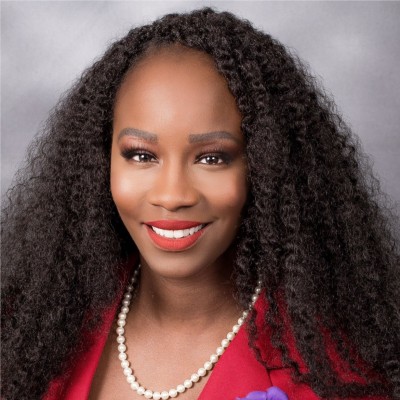Law Center News
SULC student helps strengthen Black voting power in Alabama redistricting case

Every vote counts, but the Black vote is crucial for states like Alabama and Louisiana. Fifty-eight years after the Voting Rights Act of 1965 of Alabama, the next generation still fights to protect the right to vote for Blacks in the state.
The Milligan v. Merrill case stems from challenges to Alabama’s seven-district congressional map, which included one district in which Black voters form a considerable enough majority that they have the power to elect their preferred candidate. The challengers said that one district is not enough, pointing out that Alabama’s population is more than 25% Black overall. This case has opened the door to other states looking at their congressional remapping. In June, the U.S. Supreme Court lifted its hold on a Louisiana redistricting case that could force the state to redraw congressional districts to boost Black voting power before 2024.
One of the plaintiffs in the Alabama case is Law Center student and Alabama native Shalela Dowdy, who has fought for equity and challenged the discriminatory redistricting maps in Alabama. She has played a significant role in protecting the voter rights in her state.
“I have always been big on advocacy and fighting for equity,” said Dowdy. As a civic member of the NAACP and a member of Delta Sigma Theta Sorority, Inc, Dowdy has always been involved in community activism and working with voting rights. In 2021, Dowdy was one of four women selected to complete a CROWD fellowship with the Southern Coalition for Social Justice in Alabama. She covered the southern region of the state, educating the importance of congressional redistricting on the local and state level. Through networking with other like-minded people in the state, Dowdy became close with Evan Milligan, one of the first plaintiffs in the case.
Dowdy said she became a part of the case because she knew Alabama’s maps weren’t drawn fairly. “We knew it was a reach with the case, but it was more like, why not go through with the case and advocacy because you never know what could happen. It also takes away from the ‘what if,’ why didn’t you put up a fight,” said Dowdy. Joining the case is one reason she decided to go to law school. And she chose Southern Law Center because of its flexibility and closeness to home.
“I have always known I wanted to practice civil rights law. I came into law school involved in the case. I became a plaintiff in 2021, and I started law school in August of 2022,” said Dowdy. “I went to SULC not only because I wanted to be close to home but also because this institution offered part-time classes and allowed me to be still involved back in my home state like I haven’t even left.”
Since then, Dowdy says SULC has provided her with great experiences that have allowed her to go to the supreme court again, witness Ketanji Brown Jackson being sworn in, and watch how the redistricting cases play out and be hands-on. Dowdy has continued to work with SULC through its Office of Equity, Inclusion and Title IX.
“I became involved in this matter at the organizing phase in my capacity as local counsel with Louisiana Justice Institute, a non-profit civil rights legal advocacy organization and law firm, said SULC’s director of Title IX Compliance/Title IX Coordinator. “We have partnered with national organizations on impact Litigation since Hurricane Katrina. Because I have tried voting rights cases in the federal courts in Louisiana and worked with the state NAACP and the POWER Coalition, I’ve been able to provide Louisiana counsel liaison.”
This decision by the U.S. Supreme Court means the case can finally begin to move toward a decision concerning a map with boundaries for a second majority-minority opportunity voting district here in Louisiana. It is long overdue and embodies what a fight for Justice means for people of color. “It strengthens the Black political voting power,” she added.
Learn more about the lawsuit here.
RSS News Feed
